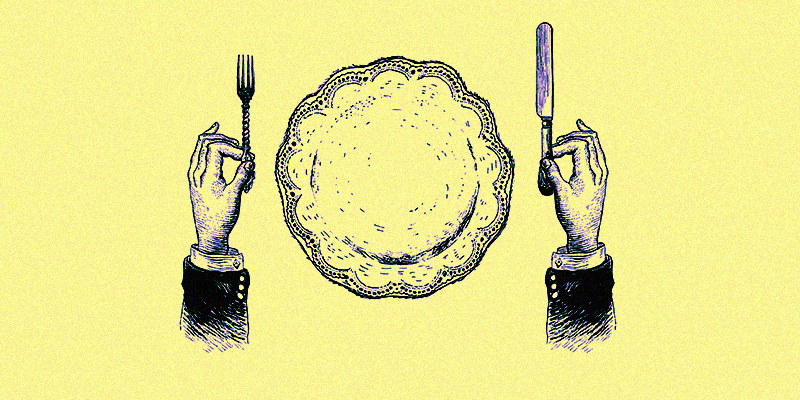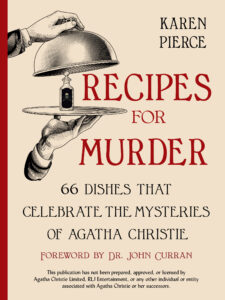Agatha Miller was born on September 15, 1890, in Torquay, England. By her own account, she “had a very happy childhood.” By 18, she had written her first short story and begun work on Snow upon the Desert, her first novel. She never sold it, but she never stopped writing.
At age 24, she met and married Archibald Christie, a British military officer. During the Great War, he fought overseas, and she worked in the Torquay Red Cross Hospital, first as a nurse and later as a dispenser in the pharmacy. Here, she formed a lifelong fascination with poisons, which guided her through many murders over the next 60 years. A fan of detective novels—which had begun in 1841 with “The Murders in the Rue Morgue” by Edgar Allan Poe, featuring French detective Auguste Dupin—and of Arthur Conan Doyle’s subsequent Sherlock Holmes stories, Christie wrote The Mysterious Affair at Styles, her first detective novel, in 1916 at age 26.
Like Hercule Poirot, who appears in her first detective novel, Christie loved good food, but this collection of recipes doesn’t examine what she ate and drank herself. Rather, it examines the different ways she incorporates various meals, dishes, drinks, and ingredients into her novels. Occasionally she wields food as a weapon, but more often meals serve as plot devices. In her stories, food develops characters or invokes settings, whether familiar or foreign. Through 33 novels and more than 50 short stories, Poirot, with his sensitive but particular stomach, pursues gastronomic pleasure, regardless of the body count. You can do the same—evoking your favourite characters, scenes, or settings—by creating these dishes in your own kitchen.
The food mentioned in the Christie canon always fascinated me, a lifelong devotee of detective fiction and a cooking enthusiast. I deduced—correctly, it seems—that others around the world must be as curious as I about marrows and marmalade, seedcake and lemon squash . . . and could the recipe for Mrs. MacDonald’s Salmon Cream in Aunt Ada’s desk really be made? This book looks at how Christie uses food in her novels, whether to advance plots or define characters, and examines the ingredients, the marmalades and marrows, that feature in them. After eliminating impossibly expert-level fare, I created a recipe for each novel that would prove easy enough for most home cooks and best represent the milieu of the novel. I scoured a variety of vintage cookbooks and other sources, including pestering family, friends, and neighbours for ideas and recipes, all of which I recreated and tested in my own kitchen.
All the recipes obey their moments in time, following the standards of their respective eras. For Entrecôte à la Merlinville-sur-Mer (The Murder on the Links, 1923), the steak fries in lots of butter on the stovetop, but for Grilled Steak at the Golden Palm (A Caribbean Mystery, 1964), the recipe calls for marinade and an outdoor grill, each according to the place and style of its setting. I decided on dishes central to plots or characters, and most recipes are both traditionally British and local to their settings, such as Welsh Cakes for Why Didn’t They Ask Evans? or Fresh Windsor Soup, a common wartime stew featured in the postwar novel Taken at the Flood. But sometimes I’ve selected something decidedly un-British. For The Secret Adversary, I chose Pêche Melba, Tuppence Cowley’s favourite dessert, which Auguste Escoffier, chef at the Savoy in London, created in honour of Australian opera singer Nellie Melba. Greek Rice Pilaf, another non-English dish, represents the murder victim’s home country in Crooked House. Death Comes as the End takes place in ancient Egypt, and for that novel I found an ancient recipe for Tiger Nut Sweets, still made today.
The Christie Estate hasn’t authorized this book, and all recipes are my own. I hope they will deepen your understanding of how Christie uses food in her books and allow you to appreciate her work in a new way. Bon appétit, mes amis.
*
DEVON BOILED POTATOES
“I hope lunch will be satisfactory. There is cold ham and cold tongue, and I’ve boiled some potatoes.”
—THOMAS ROGERS, And Then There Were None, 1939
serves 4
Christie claimed that this novel was the hardest for her to write. It became her best-selling novel and the best-selling mystery of all time, with more than 100 million copies sold. Most critics and fans consider it her masterpiece. An unknown host lures 10 strangers to an island off the coast of Devon, and the deteriorating quality of their meals heightens the tension. At first, the food and drink provide goodwill, but after two guests die, meals decline in sustenance and goodwill. (“Eight little Soldier Boys travelling in Devon; / One said he’d stay there, and then there were seven.”) By the time half of the guests have died, the survivors meet in the kitchen and eat from tins, standing up. Boiled potatoes lie exactly halfway between comfort food and bare bones. Use whole potatoes of the same size so they cook evenly.
1 pound (450 grams) small potatoes
2 tablespoons unsalted butter, melted
½ teaspoon sea salt
1. In a large pot over medium heat, add the potatoes and cover them with cold water by 1 inch (2.5 centimetres).
2. Add half the salt and bring to a boil. Cook, uncovered, until tender, about 8–15 minutes. If too much water boils off, add a little more.
3. After 8 minutes, poke the potatoes with a skewer. When it moves easily through the center, they’re done.
4. Drain the potatoes and place in a serving bowl.
5. Drizzle the potatoes with the melted butter, season with the remaining salt, toss gently, and serve.
*
LITERARY LUNCHEON MERINGUES
“Mrs. Oliver arrived at the last course of the grand luncheon with a sigh of satisfaction as she toyed with the remains of the meringue on her plate. She was particularly fond of meringues and it was a delicious last course in a very delicious luncheon.”
—from Elephants Can Remember, 1972
yields 24
In the chronologically final novel to feature both Poirot and Mrs. Oliver, Christie revisits her feelings about literary luncheons. Mrs. Oliver always declines invitations to them: “What a mistake for an author to emerge from her secret fastness,” said the fictitious crime writer in Mrs. McGinty’s Dead. But this time Mrs. Oliver does go, enjoying the speakers, her luncheon companion, and the food very much—especially these French meringues.
4 large eggs, room temperature
1 pinch fine salt
1 cup (200 grams) superfine (caster) sugar
½ teaspoon vanilla extract
1. Preheat the oven to 250°F (120°C).
2. Line 2 baking sheets with parchment paper.
3. Carefully separate the egg whites from the yolks.
4. With a stand mixer fitted with a medium bowl and a whisk attachment, whisk together the egg whites and salt on medium-high speed until soft peaks form.
5. Gradually add the sugar, 1 tablespoon at a time, while continuing to whisk. Continue until all the sugar has dissolved.
6. Add in the vanilla extract and whisk on high for 3–5 more minutes, until the mixture stiffens.
7. Spoon a heaping tablespoon of the meringue mixture on the lined baking sheets. Repeat with the rest of the mixture.
8. Decrease the heat to 200°F (90°C) and bake the meringues for 1 hour 30 minutes.
9. Turn the oven off and leave the meringues inside it overnight, or at least 8 hours, to cool completely.
10. Store them in an airtight tin for up to 1 week.
________________________
Excerpted from Recipes for Murder by Karen Pierce, copyright © 2023, reprinted by permission of Countryman Press, an imprint of W. W. Norton & Co., Inc. Recipes for Murder has not been prepared, approved, or licensed by Agatha Christie Limited, RLJ Entertainment, or any individual or entity associated with Agatha Christie or her successors.


















